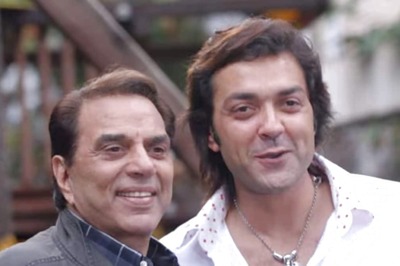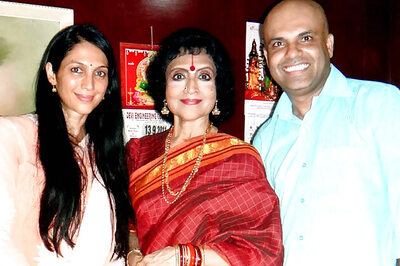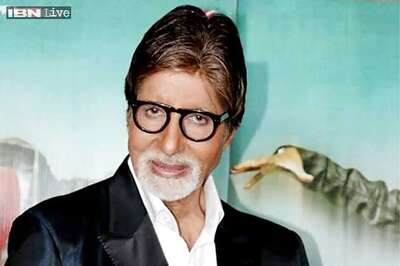
views
Doing everything they should not be doing, and not doing anything they should be doing—that is the defining feature of our political masters. They should be focused on policing; they do moral policing instead. They should try to protect our health and lives from any danger, including pollution, but they spend their time and taxpayer money to subsidise pilgrimages. They should strive for fiscal prudence, supply-side reforms and business-friendly policy framework, but they indulge in fiscal profligacy, demand-side economics, and freebies.
On the eve of the Cricket World Cup 2023 final, the Delhi government announced that November 19 would be a dry day on account of Chhath Puja. This caused consternation among the cricket buffs who wanted to enjoy the match with drinks, and also among the restaurateurs who had made special arrangements like big TV screens for the occasion. Thankfully, only liquor outlets were shut; restaurants and pubs were allowed to sell alcohol.
The Aam Aadmi Party (AAP), which runs the governments in Delhi and Punjab, is keen to guard the morals of Delhiites; but it has shown little intention and competence to check the menace of stubble burning in Punjab. Doing things it shouldn’t be doing, and not doing things it should be.
Other parties are no better. Early this month, there was a news report about a man who ran from pillar to post for eight years to ensure justice for his son who was killed in a hit-and-run case at Gurgaon in Haryana in June 2015. The father did what the local cops should have done. “After finding broken car parts at the accident site, he approached Maruti Suzuki for help in identifying the car. Despite multiple court petitions and reprimanding the police for their negligence, the investigation was not carried out. However, a recent court order has directed the police to re-investigate the case, leading to the filing of a chargesheet against the vehicle’s owner,” the report said.
The Bharatiya Janata Party-led government in Haryana seems more interested in imposing bans during religious festivals than in catching criminal offenders. Doing things it shouldn’t be doing, and not doing things it should be.
Across the length and breadth of the country, politicians are interested mostly in issues which have no bearing on the lives of people, like the promotion of Indian languages, removal of colonial legacy, and caste survey. At the same time, they remain unconcerned about real issues like the deadly smog in north India during winters, unabated pollution degradation of the environment in general, and jobless growth.
Paradoxically, the biggest culprits are not politicians but intellectual elites—certainly a large section among them. Public intellectuals and other opinion makers suffer from thinking paralysis: the thinking process that shaped economic policy and governance in the pre-1991 statist-socialist era has been thoroughly discredited because socialism itself has been discredited and yet, the same thinking process dominates in post-reforms India.
This is not to say that nothing has changed in terms of public discourse in the last 32 years. When economic reforms were launched in the summer of 1991, Leftists raised a stink. The International Monetary Fund, the World Bank, and multinational corporations were portrayed as the avatars of East India Company that would recolonise the nation, decontrol was dubbed as a surrender to India Inc, disinvestment was presented as the ‘selling family silver to pay the grocer’s bill’, and long was the list of the decisions and actions undertaken by the P.V. Narasimha Rao government. Swadeshi zealots joined in the fun.
Thankfully, such noises are few and far between today. For instance, there was hardly any fuss when the Narendra Modi government privatised Air India in January 2022.
Opinion makers failing today is not in opposing reforming measures and other good moves, it lies in not promoting reasonable ideas and economic liberalisation. As a consequence, the climate of opinion remains conducive for the abominations like freebies and big government moves like the old pension scheme. After all, every politician has to say and do things which are amenable to the prevalent climate of opinion. Intellectual elites in our country have failed to effect such a climate change.
Compare the situation in India with that in Argentina. President-elect Javier Gerardo Milei has risen because—and not in spite—of his promise to drastically reduce the size of the government. He wants to check high inflation by disbanding the central bank and dollarising the economy. While in India, politicians prefer socialist policies resulting in rigid labour laws and greater government intervention in the economy, Milei promised the opposite—and won the election.
Apparently, this happened because a large section of the thinking and influencing class in Argentina—once wedded to socialism as in other South American countries and India—has given up its fascination with socialism. Unfortunately, this is not the case in our country.
Unsurprisingly, politicians continue to take the easy path of fooling people by promoting sentimentalism, moralising, and lethal populism.
The author is a freelance journalist. Views expressed in the above piece are personal and solely that of the author. They do not necessarily reflect News18’s views.




















Comments
0 comment